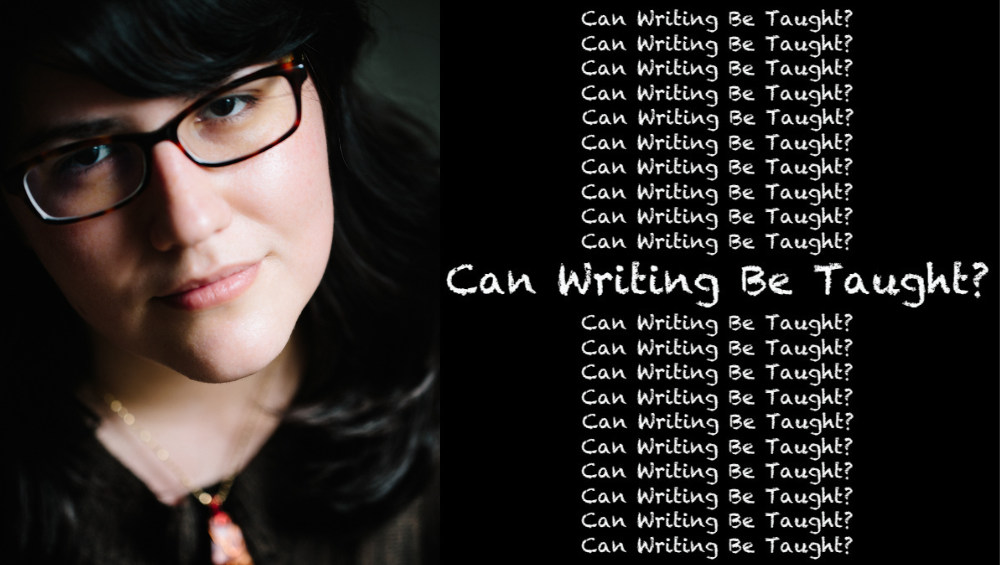In our series “Can Writing Be Taught?” we partner with Catapult to ask their course instructors all our burning questions about the process of teaching writing. This month we feature Ruth Joffre, author of the short story collection Night Beast, whose fiction appears or is forthcoming in The Florida Review Online, Lightspeed, Nightmare, and Wigleaf as well as the anthologies Best Microfiction 2021 & 2022. Check out her 4-week online fiction seminar on worldbuilding for speculative writers. We chatted with Joffre about shrimp shumai, sleeping, and the writer’s never-ending hustle.
What’s the best thing you’ve ever gotten out of a writing class or workshop as a student?
A first reader who understands my work and vision. Ultimately, the community we build as writers is more important than any assigned reading, writing feedback, or element of craft you could learn in a classroom.
What’s the worst thing you’ve ever gotten out of a writing class or workshop as a student?
As a queer Latinx woman, it’s hard not to think of all the casual misogyny, homophobia, racism, and other hate people have thrown around in critique. It’s always hard when you have classmates like that, but a good instructor can help define what constructive criticism is and shield students from such hate by establishing guardrails and community agreements.
What is the lesson or piece of writing advice you return to most as an instructor?
More and more, I think about something my instructor Benjamin Percy teaches, which is that we need to think about our characters’ jobs. Especially now, with increasing efforts to unionize at mega-corporations and the fight for workers’ rights, the question of how a character makes money—and what that does to them/what they do to others in the process—seems all the more important.
Does everyone “have a novel in them”?
Everyone could have a story of some length in them—whether that’s a novel, novella, novelette, short story, or flash. The trick is figuring out the right length and shape for that story and telling it in the best possible way. And then, of course, doing it again.
Would you ever encourage a student to give up writing? Under what circumstances?
I could only imagine doing this under some extreme circumstance, like someone turning in alt-right fascist propaganda. Otherwise, I try to be encouraging and supportive. It’s not my job to be the arbiter of what’s good writing or what could sell; it’s to help my students achieve their goals.
It’s not my job to be the arbiter of what’s good writing or what could sell; it’s to help my students achieve their goals.
What’s more valuable in a workshop, praise or criticism?
It depends on the student and their needs. I deploy alternative workshop models in my class, inspired by Matthew Salesses and Felicia Rose Chavez, and some students have said they want more praise just to give them motivation to keep going. If that’s what a student needs, far be it from me to stand in their way.
Should students write with publication in mind? Why or why not?
In general, no—unless they’re using specific calls for submissions as inspiration to get words on the page. I often encourage students to collects calls like prompts. Forget the deadline. Just sit down and write something, even if it’s a little outside your usual. You never know what it could unlock.
In one or two sentences, what’s your opinion of these writing maxims?
- Kill your darlings: A clever phrase, but don’t get too obsessed with it.
- Show don’t tell: Sometimes show and sometimes tell. Not every story requires the same tactics; you should learn how to modulate between them depending on the narrative.
- Write what you know: Up to a point. Don’t use this as an excuse to stop learning or to avoid difficult subjects, but do make sure that you understand the emotional core of what you’re writing about and the cultural context.
- Character is plot: It can be—but, then again, so can setting. It depends on what kind of story you’re telling.
What’s the best hobby for writers?
Here’s where I have to resist pushing my birding obsession on others! These days, people tend to want to monetize their hobbies or cross-pollinate in order to learn transferable skills, but I think we need to be doing less hustling and more resting. Sleep in! Learn how to make Eggs Benedict! Take up cross stitch! Whatever feels like a real break and allows you to come back to the page refreshed instead of frustrated.
I think we need to be doing less hustling and more resting. Sleep in!
What’s the best workshop snack?
Somehow this is the hardest question of all! Of late, I’ve been obsessed with the shrimp shumai from my local Asian market, but honestly anything goes in my class.
